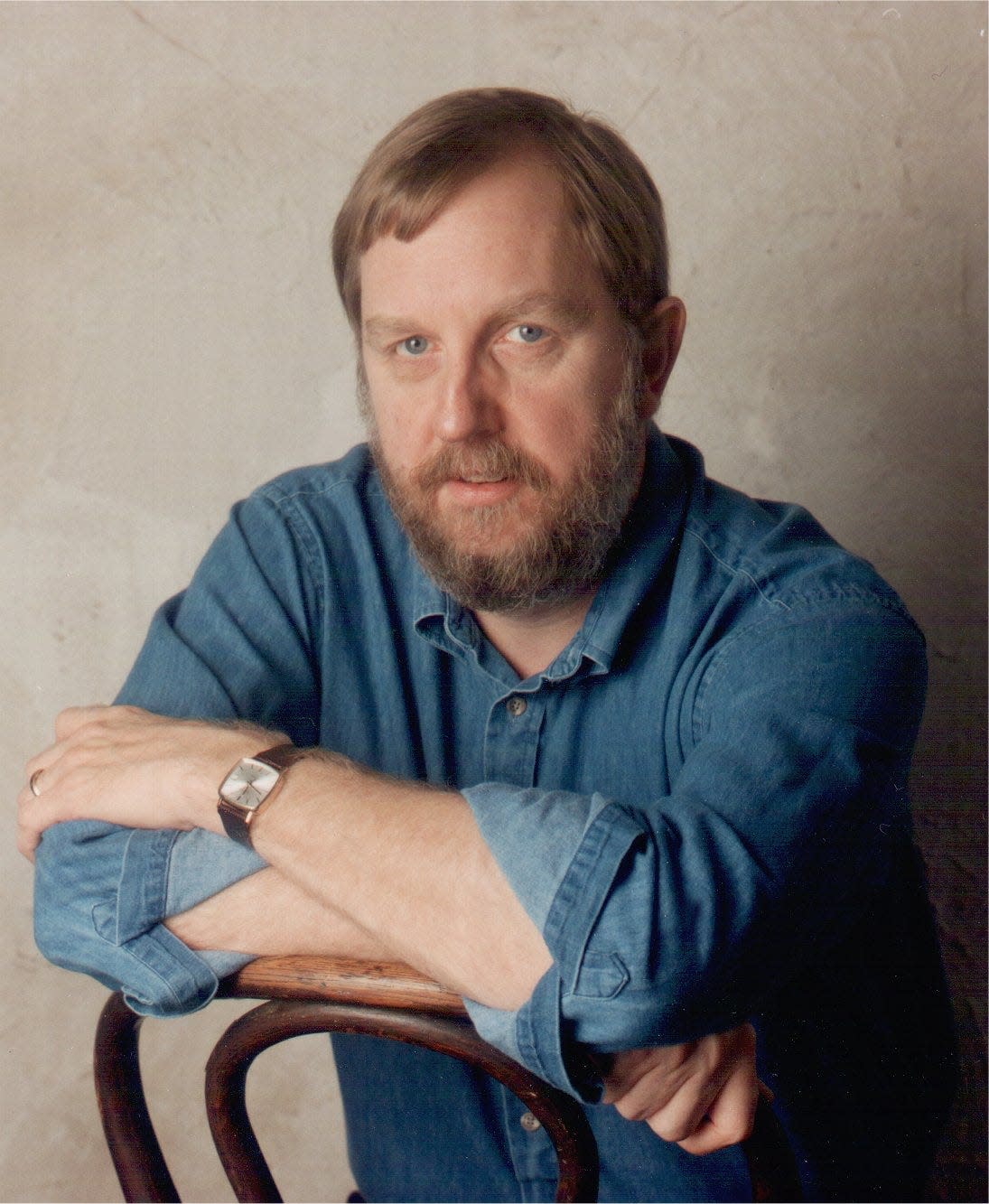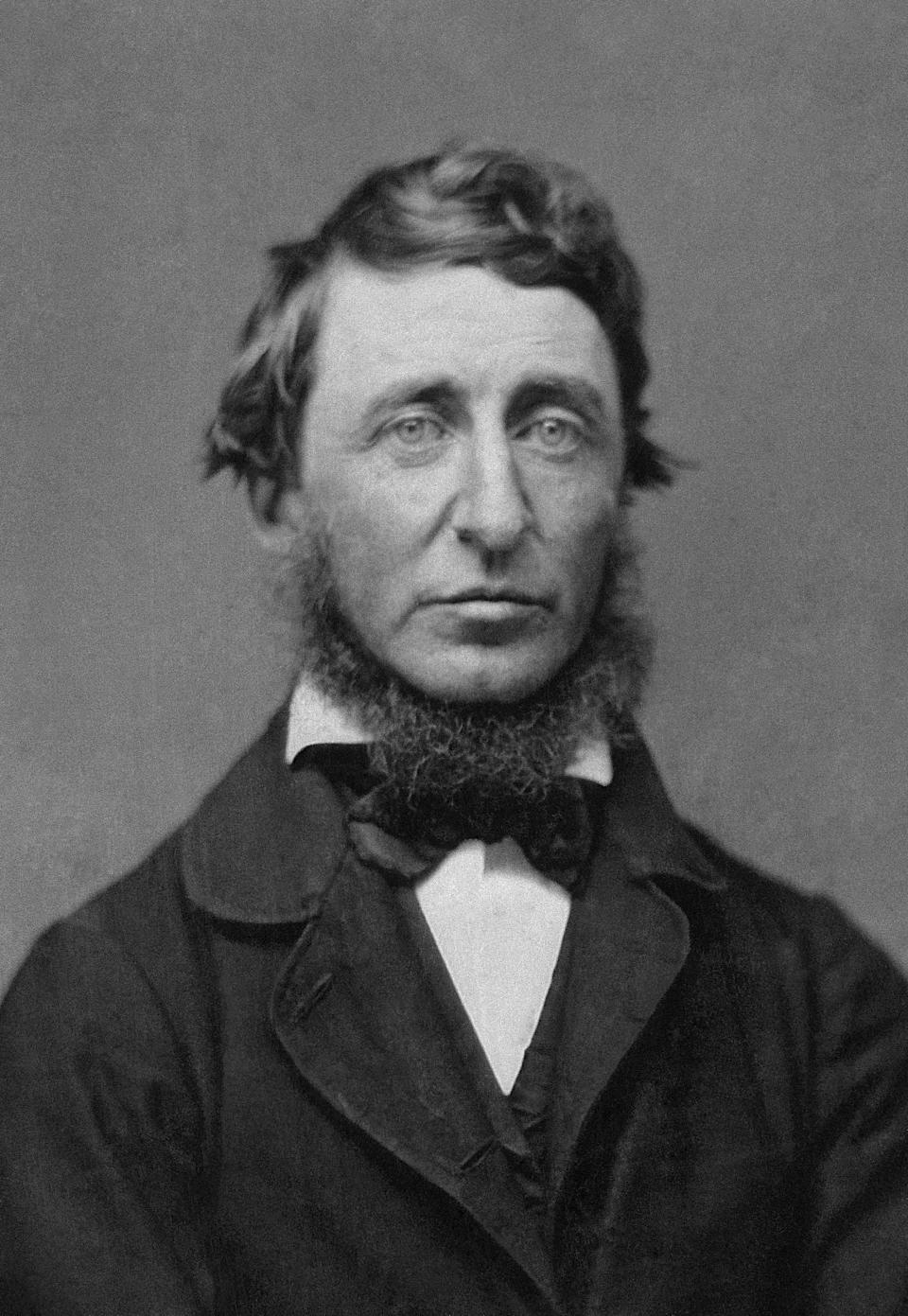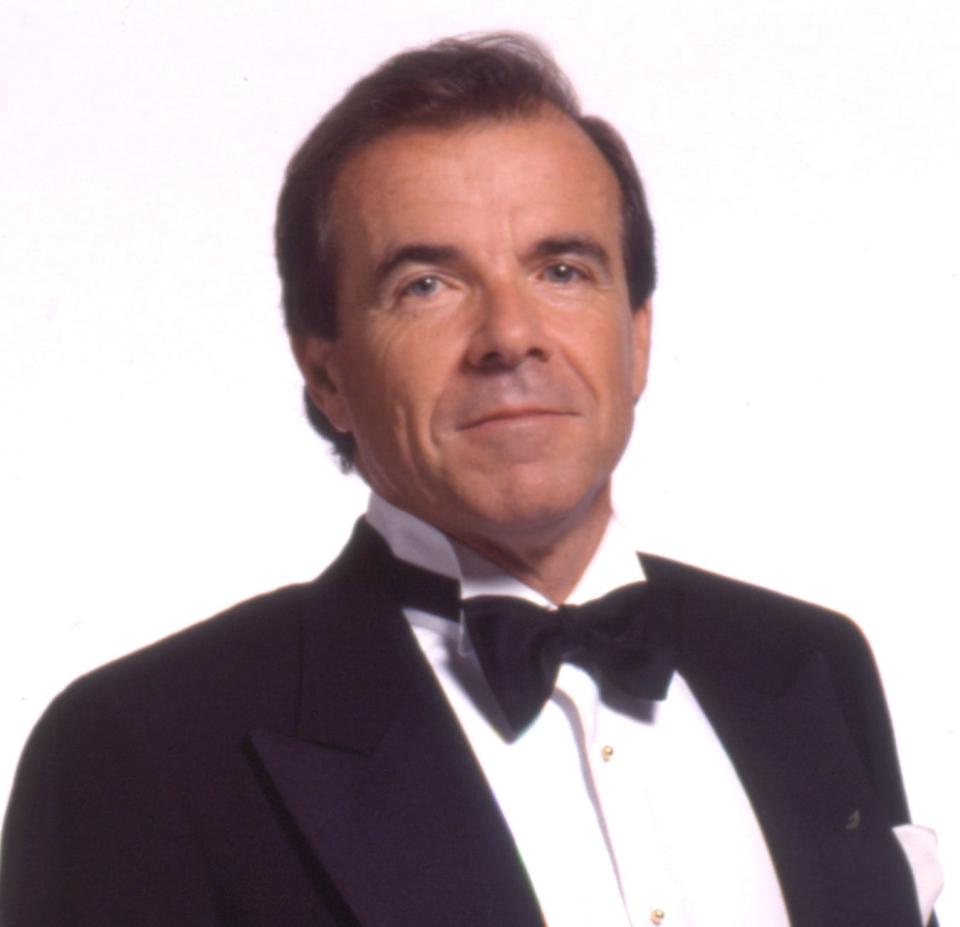Journey with Thoreau inspires world premiere work at Palm Beach Symphony

- Oops!Something went wrong.Please try again later.
- Oops!Something went wrong.Please try again later.
- Oops!Something went wrong.Please try again later.
- Oops!Something went wrong.Please try again later.
In his book "Walden," the 19th-century American transcendentalist writer Henry David Thoreau writes of the pure joy he felt simply sitting outside the tiny house he built for himself in the Massachusetts countryside, doing nothing but being one with nature.
Cue Joseph Schwantner, the 20th- and 21st-century composer, who has lived in Keene, New Hampshire, for the past 20 years. A native of Chicago, Schwantner left the academic life at Yale for the rustic rhythms of rural New England and has found in his transplanted home inspiration for his compositions.
“I was drawn to this quiet environment where I could do my work unimpeded by faculty meetings and all that. You could go out in the night and look up at the stars, and see 10,000 stars,” Schwantner said of his initial move to the Granite State, where he and his wife Janet relocated to the little town of Spofford. “I was really drawn into that; as a kid from the suburbs of Chicago, it was a new experience for me. I’ve thought about it a lot, and how it impacted my life and my music, and I think my work has improved.”
Tuesday night, Schwantner’s newest piece will have its world premiere at the Kravis Center, when the Palm Beach Symphony performs his "Sojourn: Reflections on Thoreau" as the first of five works commissioned expressly for the orchestra from leading composers. Also on the concert, led by the orchestra’s director, Gerard Schwarz, is the "Concerto in F" of George Gershwin, played by the eminent pianist Misha Dichter. Rounding out the program is a suite from Stravinsky’s "The Firebird," and an early "Adagio" by Anton Webern, in an arrangement by Schwarz.
Schwantner’s "Sojourn" was commissioned by Palm Beach resident Bonnie McElveen-Hunter, who was the U.S. ambassador to Finland from 2001 to 2004. It is dedicated to Dr. Joel Kassimir, a prominent New York dermatologist.
The score of "Sojourn," a symphonic essay of about 17 minutes, is dotted with quotations from Thoreau, including one from the writer’s voluminous journal that gives the piece its title: “I don’t want to feel as if my life were a sojourn any longer. It is time now that I begin to live.”
Schwantner said Thoreau’s work has inspired several of his pieces, including "Dream Drapery," a song cycle based on Thoreau poems; "Smoke," a piece for a cappella choir; "Chasing Light" and "Morning’s Embrace," two works for orchestra; and "The Poet’s Hour," a piece for solo violin and string orchestra.
“I’ve been really inspired by poetry, and not just Thoreau,” Schwantner said earlier this month by phone from his home in Keene. “For some reason, over the last 20 years, Thoreau seems to have captured my musical imagination. And that’s one of the things that I’ve always turned to in my music when I’m thinking of certain musical ideas. Poetry, and poetical ideas, seem to come to mind.”

He also is drawn to Thoreau’s insistence on simplifying one’s life.
“There’s a kind of simplicity in his writing. His life was about simplicity; he avoided the trappings of success,” he said. “I like that aspect about him: A simple man who did extraordinary things in his life.”
Schwanter, who turns 80 this month, has had a career of considerable success. After studies at the American Conservatory and Northwestern University in Chicago, he embarked on a life of teaching and composing that took him to the faculties of the Eastman School, Juilliard and Yale. In 1979, he won the Pulitzer Prize for his orchestral piece "Aftertones of Infinity," and in 1982 wrote perhaps his best-known composition, New Morning for the World: “Daybreak of Freedom,” a work for narrator and orchestra featuring excerpts from speeches by Martin Luther King Jr.
More recently, his Percussion Concerto, written in 1995 for Christopher Lamb, principal percussionist of the New York Philharmonic, has become a repertory piece. Schwantner said it has enjoyed more than 300 performances in concerts worldwide since its premiere. Lamb won a Grammy for his 2011 recording of the concerto with the Nashville Symphony. In 2002, Schwantner was named to the prestigious American Academy of Arts and Letters.
Schwantner’s style is an intriguing blend of the serial-music techniques he employed in his early works, and a tonal approach that emphasizes certain pitches rather than what theorists call functional harmony. These different aesthetics blend in his music to create a highly rhythmic, extravagantly colorful style that is at once far-reaching and immediately vivid.
That style came about gradually. In 1980, he wrote a song cycle called "Sparrows" in which he moved away from the serial style that had dominated the academic musical world in the mid-20th century. After all, his own background was much more inclusive. Trained as a guitarist, he had grown up in Chicago playing classical but also listening via crystal radio to broadcasts of blues music from the Black clubs of the South Side, where titans such as Howlin’ Wolf and Muddy Waters were in their prime.
“('Sparrows') was a revelatory work in my own mind, and I felt I had much more freedom to look elsewhere for direction; my music might be tonal, it might not be tonal,” he said. “The idea was: Can I draw all that together? At the end of the day, is there a voice that would seem to represent my music?”
And the answer was yes. “At this time, I’m comfortable with my ability to draw from many different sources in my own work,” he said.

"Sojourn" charts a path from a hushed, dark opening to a bright ending by using small, precise motifs, and sections of the orchestra playing off against other sections with washes of distinct color: Fluidly expansive winds, tightly massed strings, bursts of drum-and-bell brilliance from the percussion. Around the middle of the work, a solo cello enters with a passionate utterance whose elements will be taken over by the full orchestra, ending in a powerful conclusion.
“The music is extraordinary — full of imagination, color, poignancy, depth and real beauty,” Schwarz said in a prepared statement. “We at the Palm Beach Symphony are so fortunate to be able to present the premiere of this magnificent work.”
For his part, Schwantner said he has known Schwarz, who led the Seattle Symphony for 26 years, for four decades. “I’ve always admired him as a conductor, as a musician, someone who is committed to performing new music. He has a long history of that. He’s played my music in Seattle, and before that, in New York over the years when he was conducting a variety of ensembles.”
Schwantner said he is currently working on another percussion concerto, this one for soloists and wind ensemble that will feature improvisation for the solo instrumentalists. “I’m going to try to incorporate improvisation throughout the composition, and I’ve never done that before,” he said. “It presents a whole new series of challenges.”
As he nears a milestone birthday, Schwantner says he remains as devoted to composition as he was from his earliest musical efforts. “I’m going to be 80 in a couple weeks, and my enthusiasm for what I’m doing hasn’t changed from the time I was that young boy,” he said.
If you go
What: Palm Beach Symphony concert, featuring pianist Misha Dichter; music by Gershwin, Webern, Stravinsky and Schwantner
Where: Kravis Center for the Performing Arts, 701 Okeechobee Blvd., West Palm Beach
When: 8 p.m. Tuesday
Tickets: $25-$95, available at www.PalmBeachSymphony.org, by calling 561-281-0145, and at the Palm Beach Symphony Box Office weekdays from 10 a.m.-3 p.m. at 400 Hibiscus St., Suite 100, West Palm Beach. Also available by visiting www.kravis.org or calling 561-832-7469.
More information: Call the symphony office at 561-655-2657, ext. 205
This article originally appeared on Palm Beach Daily News: Writings of Thoreau inspire composer Schwantner's work for PB Symphony

